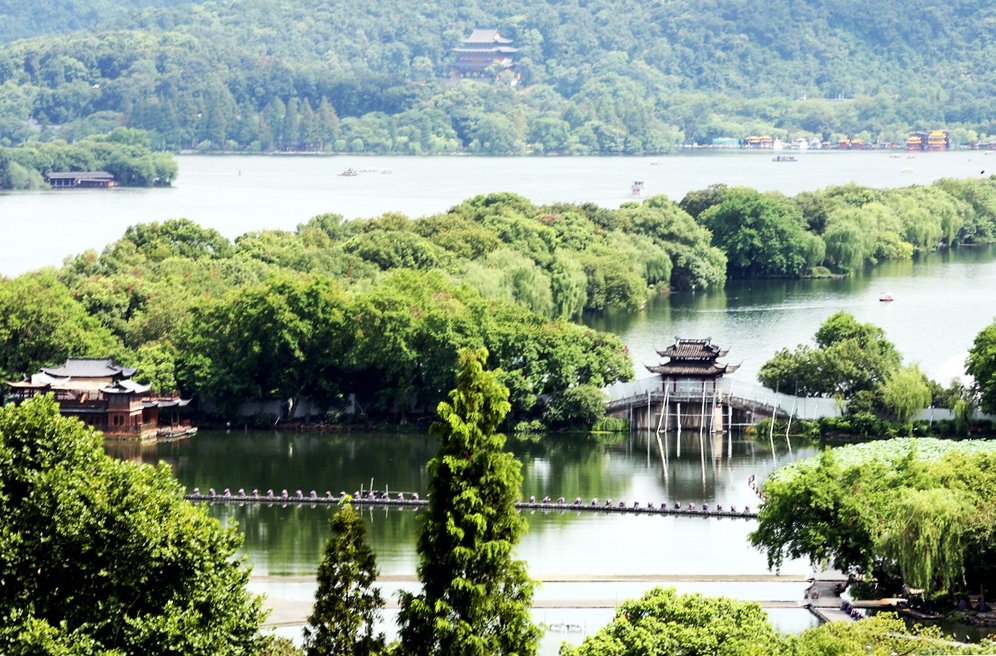The West Lakes located in Hangzhou, China, and Hanoi, Vietnam, are not only geographical wonders but also repositories of rich cultural and mythological significance. These two lakes, sharing the same name and intertwined with fascinating legends, stand as symbols of the historical and cultural connections between China and Vietnam.
Hangzhou’s West Lake: A Blend of Natural Beauty and Chinese Lore
West Lake in Hangzhou, situated in the Zhejiang Province of East China, is renowned for its scenic beauty and historical significance, earning it a place as a UNESCO World Heritage site. The lake has been a source of inspiration for poets, artists, and scholars throughout Chinese history, with its picturesque landscape comprising tranquil waters, lush gardens, pagodas, and temples.
One of the most iconic structures on Hangzhou’s West Lake is the Leifeng Pagoda. This pagoda, steeped in history and legend, is a testament to the lake’s significance in Chinese culture. It is associated with various tales and folklore, most notably the legend of the White Snake, a story deeply ingrained in Chinese mythology.
Hanoi’s West Lake: A Vietnamese Mirror with Historical Depth
Similarly, the West Lake in Hanoi, Vietnam, is a site of immense cultural importance. This large freshwater lake, the biggest in the city, is not only a natural wonder but also a central piece in the cultural and historical tapestry of Vietnam. The lake is home to the Tran Quoc Pagoda, an ancient Buddhist temple situated on a small island. This pagoda, with its striking resemblance to Hangzhou’s Leifeng Pagoda, serves as a spiritual and cultural landmark, embodying the historical and religious dimensions of Vietnamese culture.
A Shared Mythical Origin: The Tale of Two Fairies
Beyond their physical similarities and individual historical significances, these lakes share a mythical connection rooted in a charming folk legend. According to this tale, in ancient times, two fairies descended from heaven without permission. Overwhelmed by the beauty of the mortal world, they were reluctant to leave. As they departed, each fairy threw down a bronze mirror as a token of remembrance. One mirror landed in Hangzhou, creating the West Lake, while the other fell in Hanoi, giving birth to its namesake.
This legend, although mythical, symbolizes the deeper cultural and spiritual connection between China and Vietnam. The story of the two mirrors turning into lakes serves as a metaphorical bridge linking the two nations, reflecting shared traditions and mutual respect in folklore and cultural heritage.
Conclusion: Lakes as Cultural and Mythical Bridges
The West Lakes in Hangzhou and Hanoi, through their shared names, similar landscapes, and intertwined legends, represent more than just natural landmarks. They are a testament to the shared histories, cultural similarities, and mythical connections between China and Vietnam. These lakes, with their respective iconic pagodas, serve as reminders of the rich cultural tapestry woven through the ages in both countries. The story of the two fairies and their mirrors beautifully encapsulates the essence of these connections, inviting people to explore and appreciate the deeper cultural bonds between these neighboring nations.
READ MORE:
